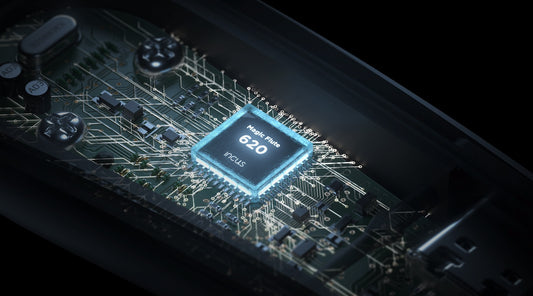
Hearing Damage Is Irreversible
Normally, our hearing is capable of distinguishing between hundreds and thousands of different sounds. However, imagine if you were affected by hearing loss. You might be unable to:
- Hear the car horn, putting you at risk of traffic accidents
- Hear door-knocks, so you do not notice when a guest is visiting
- Communicate with friends and family on the phone
- Understand the content of your favourite TV show
People with hearing loss are unable to connect with the world conveniently.
Regardless of age, hearing loss can have severe consequences. Over time, the elderly with severe hearing loss would become less communicative and be at increased risk of dementia. Young people with hearing loss could lose self-confidence, and gradually avoid communication with others. Children with hearing loss might develop speech disorders, affecting their physical and mental health with learning conditions.
Hearing loss hinders communication and reduces people’s ability to take care of themselves, and indirectly affects the quality of their life, relatives and friends around them. As a result of the difficulties in communicating, the elderly with hearing loss are at risk of becoming more socially isolated and losing touch with loved ones. Studies have found links between untreated hearing impairment and depression and that hearing loss can hasten cognitive decline.
The World Health Organization stated that about 1.1 billion people aged 12-35 years old worldwide are risking irreversible hearing loss.
A perhaps familiar feeling is sudden hearing loss when leaving a concert hall or night club. This phenomenon is explained by the hearing thresholds increasing after being exposed to a noisy environment for a time. The hearing thresholds will return to normal after leaving the noisy environment and resting in a quiet place. The younger generation might already have joined the rank of hearing loss without being aware of it. The impact of noise may not be noticeable when you are young. As you get older, your hearing loss will gradually deteriorate until the problem becomes apparent.
Read our article about how noise damages your hearing and how to protect your hearing.
Hearing Care For All
The theme of the 2021 World Hearing Day is "HEARING CARE FOR ALL-Screen, Rehabilitate, Communicate." The goal is to raise worldwide awareness to pay attention to hearing health and take corresponding actions to solve the public's hearing loss and ear diseases.
Incus was founded based on a related idea. Knowing how expensive traditional hearing aids are, Calvin Zhang and Prof. Richard So founded the company to make their hearing technology invention more accessible.
How to Find Out if You Have a Hearing Loss?
Some people may think that there is no problem with hearing as long as you can still hear something. This stereotyped concept has caused the public to overlook hearing examinations.
Besides, you should also pay attention if one or several of the following apply to you:
- Always miss some words when watching TV at a normal volume
- Often interrupt or ask the others to repeat the conversation or increase their volume when communicating face to face
- Find it difficult to join the conversation in a noisy restaurant
- Others say you speak too loudly
- Unable to do phone calls smoothly
Usually, symptoms such as tinnitus, insomnia, dizziness and so on also indicate that you may have hearing problems and require medical help.
You should see a hearing care professional or audiologist for a complete evaluation of your hearing if you are interested in a hearing test.
What Can I Do if I Suffer From a Hearing Problem?
Your audiologist would suggest different solutions depending on your level of hearing loss. Hearing Aids would be one of them. Nowadays, there are many hearing aids in the market, with different styles and features. Besides traditional hearing aids, smart personal sound amplifiers are also capable of amplifying and personalising sounds. They are disguised as regular Bluetooth® earphones and can avoid the stigma associated with wearing traditional hearing aid styles.
Sound personalisation technology customises sound to the user’s unique hearing profile and protects hearing.
Kite smart personal sound amplifier is an example of a device that combines Bluetooth wireless streaming with personalised sound technology.
Learn more about how sound personalisation works and how to connect Kite to digital devices.



